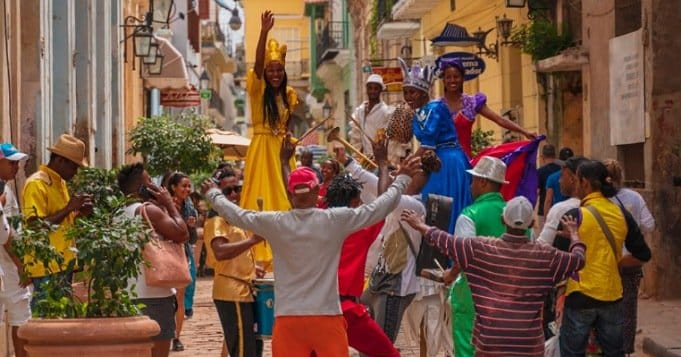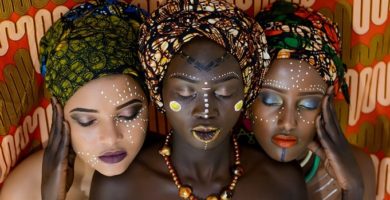
Walking through the Cuban neighborhoods is to appreciate one of the greatest cultural mixes in Latin America and the Caribbean. The Afro-Cuban culture fundamentally, it is a representation of a magical syncretism that seizes the entire island.
"Cuba is an ajiaco"
The manifestations of the Yoruba religion are a regular part of Cuban daily life.
Many of the rites that are practiced on the Island are recognized as folk customs, brought by African slaves who, unable to build temples for their deities, gradually syncretized them with the saints of the Catholic cults.
That is why today it is so common to visualize the flashes and representations of that Afro-Cuban culture everywhere,
You can see religious festivals with African nuances and observe, at the same time, a crowd of people attending a mass in a Catholic church.
For this reason, Cuba today is mainly a Catholic country with the influence of Afro-Cuban beliefs, because “Cuba is an ajiaco”, as the renowned anthropologist Fernando Ortiz defined the identity of this Caribbean Island.
A mixture of Cuban
At present, expressions of the Afro-Cuban culture They are increasingly recognized throughout the country and religious practices and popular deities constitute an image of Cuba to the world.
Today, there are not only multiple sanctuaries that syncretize African saints and deities, but you can notice the presence of the Yoruba religion in music, dance, the arts. Everything is linked.
Religious holidays are curious details for foreign observers.
In them Cubans of both sexes gather to celebrate a religious rite in which a large cauldron or nganga is almost always present, or a sacred instrument of the Afro-Cuban rule known as Palo Monte or Mayombe.
These ceremonies unite both blacks and whites and they sing and dance to the music generated by the beating of drums and the leather of stools.
The music, the lyrics of the songs, the rhythms of the dance, represent the nostalgia for the African airs.
Mestizaje, constant and present
Concerning the worship of deities, the Afro-Cuban culture it is more present than ever.
Cubans pray to Saint Lazarus o Babalu Aye to ask him for health and a cure for their illnesses, they kneel before the Virgin of Caridad del Cobre u Oshun and thank him for his blessings and worship the great Monkey and its essence seen in the Santa Barbara.
Also, African words are translated into colloquial conversations on the island. What Cuban has not used the word tangana, or has complained that the changüí is over?
That is Cuba, miscegenation and mixing on every corner.



